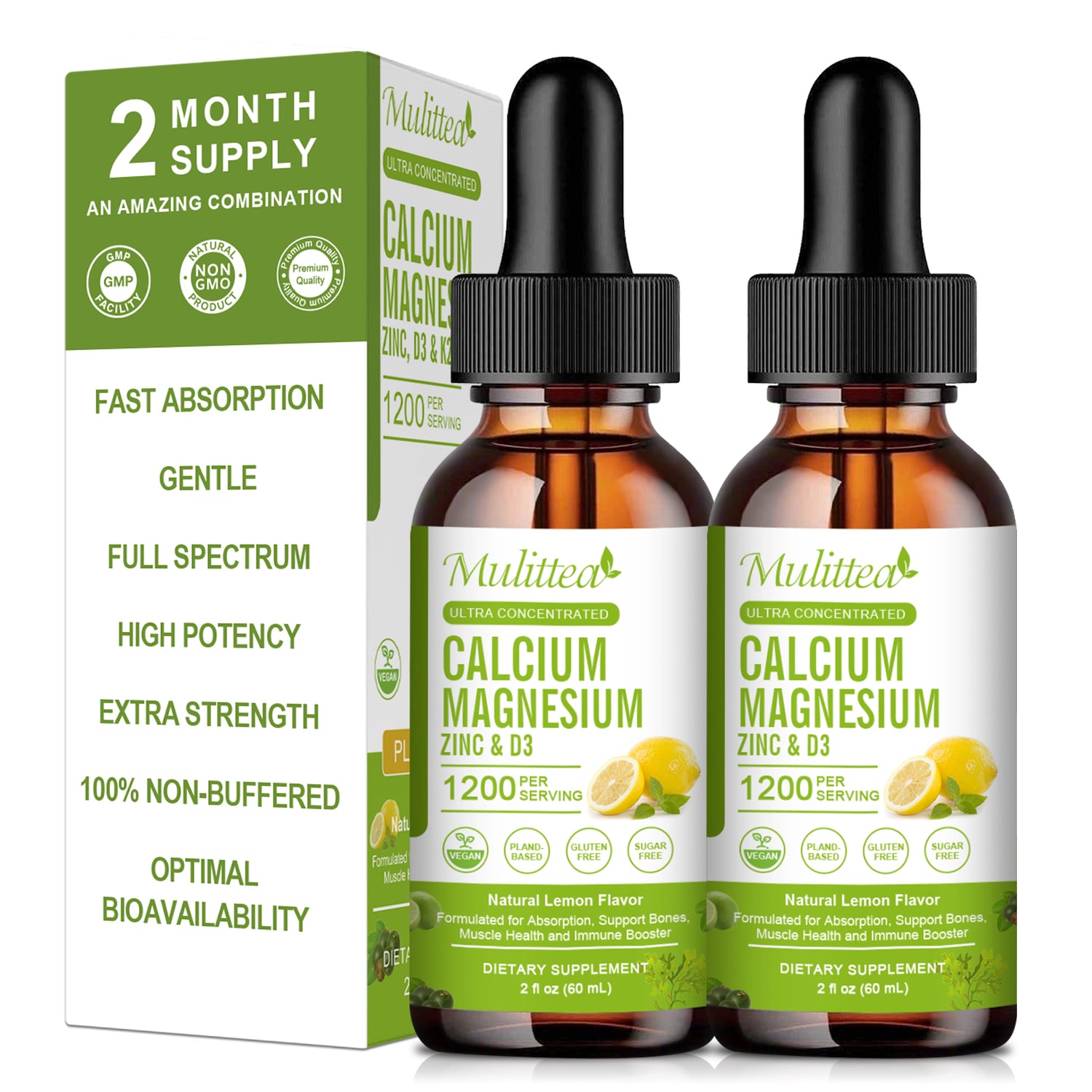
The Role of Zinc in Bone Remodeling and Repair
Share
Bones are more than just structural components of the body; they are dynamic tissues that undergo constant remodeling throughout our lives. This process of bone remodeling is crucial for maintaining bone strength, density, and overall health. One mineral that plays an essential role in this intricate process is zinc. Often overlooked in favor of calcium and vitamin D, zinc is just as vital when it comes to building and repairing bones. In this article, we will explore the role of zinc in bone remodeling, how it contributes to bone repair, and how you can optimize your zinc intake for healthier bones.
What is Bone Remodeling?
Bone remodeling is a continuous process in which old bone tissue is replaced with new tissue. It is essential for maintaining bone strength, repairing minor damage, and adapting to the stresses and strains placed on bones during daily activities. This process involves two main types of cells:
- Osteoblasts: These are the bone-building cells responsible for producing new bone They synthesize collagen, a protein that forms the foundation of bonetissue, and mineralize it with calcium and other minerals to create hard, dense bone.
- Osteoclasts: These cells break down old or damaged bonetissue, a process known as bone Osteoclasts help to regulate bone turnover by removing old or weak bone to make room for new tissue.
In healthy individuals, bone remodeling is balanced. However, when this balance is disturbed, it can lead to problems such as weakened bones, osteoporosis, or fractures. Zinc plays a key role in ensuring that bone remodeling occurs effectively and in harmony with the needs of the body.

The Importance of Zinc for Bone Health
Zinc is an essential trace mineral found in every cell of the body, and it plays a critical role in maintaining overall health. For bone health, zinc is particularly important due to its involvement in a variety of biological processes related to bone structure, density, and integrity.
- Collagen Synthesis: Zincis a vital cofactor in the synthesis of collagen, which is the primary protein that forms the extracellular matrix of bone Collagen provides the framework upon which minerals like calcium and phosphorus are deposited to form hard bone tissue. Without sufficient zinc, collagen production can be impaired, leading to weak and fragile bones.
- Bone Mineralization: In addition to collagen, zinc helps in the mineralization of the bone This means zinc supports the process by which calcium and other minerals are incorporated into the bone structure, ensuring strong and resilient bones.
- Regulating Bone Formation and Resorption: Zinc directly influences the activity of osteoblasts and osteoclasts. It promotes osteoblast differentiation and function, encouraging the production of bone-forming cells. Zinc also inhibits excessive osteoclast activity, which is crucial for preventing bone
Zinc’s Role in Bone Remodeling
Bone remodeling is a delicate balance between the creation of new bone and the resorption of old bone. Zinc plays a critical role in maintaining this balance:
- Osteoblast Activity: Zincactivates certain proteins in osteoblasts that are essential for bone By promoting osteoblast differentiation and increasing their activity, zinc helps to stimulate the creation of new bone tissue, contributing to stronger bones.
- Bone Resorption Regulation: Zinc has been shown to inhibit excessive activity of osteoclasts, the cells responsible for bone By preventing overactive resorption, zinc helps maintain bone density and prevents the breakdown of bone tissue, ensuring that bones do not become brittle or fragile.
- Bone Matrix Mineralization: As a crucial player in bone matrix mineralization, zinc helps bind calcium, phosphorus, and other minerals to the collagen framework. This mineralization process is essential for strengthening the bones and preventing conditions like osteomalacia, a softening of the bones due to insufficient mineralization.
Zinc and Bone Repair
Bone injuries, fractures, or damage due to conditions like osteoporosis require efficient bone repair mechanisms. Zinc plays a vital role in bone healing and recovery by supporting the repair of damaged bone tissue.
- Cell Growth and Regeneration: Zincpromotes the proliferation of osteoblasts, the bone-forming cells, and accelerates the formation of new bone. During the bone healing process, zinc stimulates these cells to migrate to the injury site and start forming new bone
- Collagen Formation: Collagen is the primary protein that provides the scaffold for bone Zincis required for collagen synthesis, which is crucial for the initial stages of bone repair. Without adequate zinc, collagen production can be impaired, slowing down the healing process.
- Reducing Inflammation: Zinchas anti-inflammatory properties that help reduce the inflammation that often accompanies bone Chronic inflammation can impede the healing process, but zinc’s role in regulating immune response and controlling inflammation helps to speed up recovery.
In clinical studies, zinc supplementation has been shown to improve fracture healing time and reduce the risk of delayed or non-union fractures, making it an essential nutrient for effective bone repair.
The Effects of Zinc Deficiency on Bone Health
Zinc deficiency can have serious consequences for bone health. Inadequate zinc levels can lead to slower bone healing, weaker bones, and an increased risk of fractures. Here are some of the signs and effects of zinc deficiency on bone health:
- Slower Bone Healing: Zinc is critical for the regeneration of bone A deficiency in zinc can delay bone healing, leading to prolonged recovery times after fractures or bone injuries.
- Weakened Bones: Insufficient zincimpairs collagen synthesis and bone mineralization, leading to fragile bones that are more prone to fractures.
- Osteoporosis: Long-term zincdeficiency can contribute to bone loss and conditions like osteoporosis, a disease characterized by reduced bone density and increased fracture risk. Zinc’s role in regulating osteoblast and osteoclast activity is critical for maintaining bone density, and its absence can result in weakened bones over time.
- Increased Fracture Risk: Due to its essential role in boneformation and repair, a lack of zinc can make bones more susceptible to fractures. Individuals with zinc deficiency may experience more frequent bone breaks and longer healing times.
Mulittea’s Zinc-containing supplements for Bone Health
At Mulittea, we understand the importance of supporting your bone health with high-quality supplements. Our zinc-containing supplements is carefully crafted to support bone remodeling, repair, and overall strength.
- Natural Ingredients: We use only the finest natural ingredients to provide you with a potent zincformula that enhances bone health.
- Bioavailability: Our zinc-containingsupplements are designed for maximum absorption, ensuring that your body can fully benefit from this essential mineral.
- Support for Bone Health: Mulittea’s zinc-containing supplements help maintain bone density, speed up healing, and prevent bone loss, ensuring you have strong bones for life.
Conclusion
Zinc is an essential mineral that plays a pivotal role in bone remodeling and repair. Whether you're looking to prevent bone loss, speed up recovery from a fracture, or maintain healthy bone density, zinc is a critical component of your bone health strategy. By ensuring you’re getting enough zinc through diet or supplements, you can support your bones for a lifetime of strength and vitality.
References
- "Zinc and Bone Health." National Institutes of Health, Office of Dietary Supplements, www.ods.od.nih.gov/factsheets/Zinc-HealthProfessional/.
- Fong, P. Y., et al. "Zinc and Bone Health: From Structure to Function." Journal of Bone and Mineral Research, vol. 28, no. 8, 2013, pp. 1517–1525.
- "Zinc Deficiency and Bone Health." WebMD, www.webmd.com/osteoporosis/zinc-deficiency-and-bone-health.

